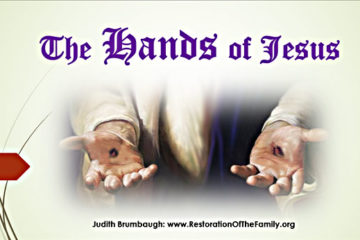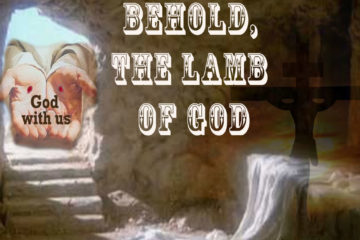Dear Brother or Sister in the LORD:
The teaching below has been made into a video. We urge you to view this video, make it a part of your celebration, and share it with others.
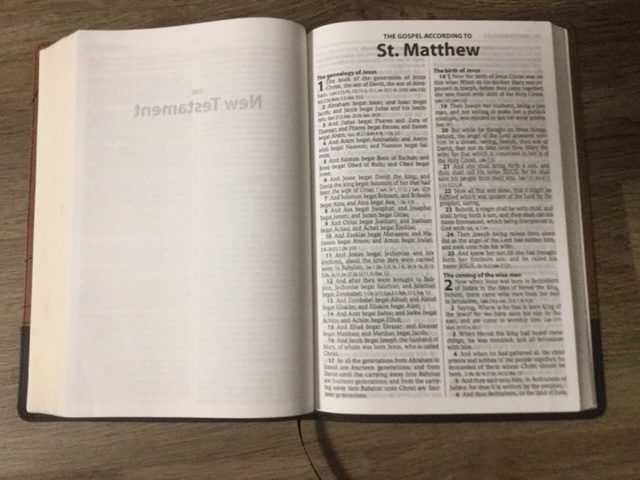
Miraculous, dramatic, intriguing, monotonous; these are adjectives that could describe the initial chapter of the first book of the New Testament. Matthew opens his gospel with an incredible amount of succinct information, which, in the first 17 verses, seems to be to a very boring account of three sets of 14 “begats;” and, I would venture to say, over which most readers quickly scamper!

The “begats” are followed by the account of a perplexing, seemingly unchaste relationship between two engaged people, Joseph and Mary. Within one succinct verse, we learn that Mary is engaged and becomes pregnant. The “out-of-wedlock,” unborn child, drives a wedge between the fiancé and fiancée to the point that Joseph decides he should divorce Mary, even though the two are not married.
How could this be? Can you explain it?
The Language of the Bible must be studied.
The information given in Matthew is only perplexing when we try to understand the words which have been preserved for our study if we neglect to search the Bible by comparing and cross-referencing Scriptures. That’s what every believer must learn to do. Additionally, it’s important to also be aware of some of the Jewish practices and idioms reflected in the Bible that may be foreign to us today. Some of those are directly applicable to the recording of the engagement and marriage of Joseph and Mary and the subsequent conception and birth of our Messiah, Jesus Christ.
Now the birth of Jesus Christ was on this wise: When as his mother Mary was espoused to Joseph, before they came together [were married], she was found with child of the Holy Ghost. Then Joseph her husband, being a just man, and not willing to make her a publick example, was minded to put her away [divorce] privily. Matthew 1:18,19
Even more bizarre may seem some of the facts shared through the gospel of Luke when the angel, Gabriel, tells Mary that her “out-of-wedlock” pregnancy would not only be a blessing from the LORD but that she is … highly favoured … blessed art thou among women. (Luke 1:28) … Fear not, Mary: for thou hast found favour with God. And, behold, thou shalt conceive in thy womb, and bring forth a son, and shalt call his name JESUS. Luke 1:30-31
How Shall This be, Seeing I know not a man?
Gabriel reviews Old Testament teachings that Mary would have studied. He provides, through internal evidence, a glimpse of Mary’s commitment to the Word, to God, and of her righteous lifestyle. Mary didn’t question the content of Gabriel’s authoritative message but rather how this conception could possibly happen. She humbly replied … How shall this be, seeing I know not a man? Luke 1:34
And the angel answered and said unto her, The Holy Ghost shall come upon thee, and the power of the Highest shall overshadow thee: therefore also that holy thing which shall be born of thee shall be called the Son of God. Luke 1:35

Out of the whirlwind, Mary would learn that she would be part of fulfilling a unique, one-time supernatural conception, fulfilling a prophecy given hundreds of years prior (700 B.C.): … a virgin shall conceive, and bear a son, and shall call his name Immanuel. Isaiah 7:14
Matthew 1:18-19 comes alive.
Now let’s return to Matthew 1:18-19 to review some important Jewish terms and customs, many of which even seasoned Christians are unclear. The terminology used to identify parties to an engagement today and that recorded in the Bible, such as between Joseph and Mary, differ and thus cause a lot of confusion in contextually interpreting many New Testament passages
When Matthew recorded his gospel, a Jewish engaged man and woman were not called fiancé and fiancée, the commonly adapted terms we use today. Instead, the Jews referred to the engaged man and woman as husband and wife. Thus, they had two classifications of husbands and wives: espoused (engaged) husbands and wives and married husbands and wives. Espoused is the Jewish term used in the New Testament for those who were engaged. (Betrothed was also used to identify those who were engaged, but this term for engagement is only used in the Old Testament.)

This explains why in Matthew 1:19, Joseph is called a husband. Even though Matthew clearly tells the reader that Joseph and Mary were espoused (engaged) in verse 18, it may not be clear why in verse 19, he is called Mary’s husband; that is, absent the understanding of the Biblical Jewish idioms: Then Joseph her [engaged] husband, being a just man, and not willing to make her a publick example, was minded to put her away [divorce] privily. Matthew 1:19
Jewish engagements were also much more serious and almost permanent, quite the opposite of our engagements today. To break an engagement (espousal), which was a legal agreement (contract), one of the parties had to divorce (put away) the other. This was formally executed through a legal document called a “writing of divorcement.”
The Angel spoke to Joseph.
When Joseph learned that Mary was pregnant, “out of wedlock,” that would have been considered a very serious sin. It was the falsely suspected act for which Joseph was considering to divorce (put away) his beloved espoused “wife,” Mary. However … the angel of the LORD appeared unto him in a dream, saying, Joseph, thou son of David, fear not to take unto thee Mary thy wife: for that which is conceived in her is of the Holy Ghost. Matthew 1:20
The angel continued to relate to Joseph that this child was the long-awaited Messiah. He quoted details from Isaiah 7:14 about this supernatural conception: Behold, a virgin shall be with child, and shall bring forth a son, and they shall call his name Emmanuel, which being interpreted is, God with us. Matthew 1:23
After hearing these familiar Old Testament words, Joseph understood and obeyed the angel: … and took unto him his wife. Matthew 1:24 The words took unto him his wife are words similar to those we speak today when we vow in a marriage ceremony: “I, Judith, take thee, Doug, to be my wedded husband from this day forth … till death us do part.”
When Joseph TOOK unto him his wife, this, unlike the Jewish espousal CONTRACT, involved an act of God joining two people, neither of whom has a living one-flesh spouse. This is what God does, supernaturally, invisibly and permanently. He makes the man and woman one flesh until the two are separated by physical death.

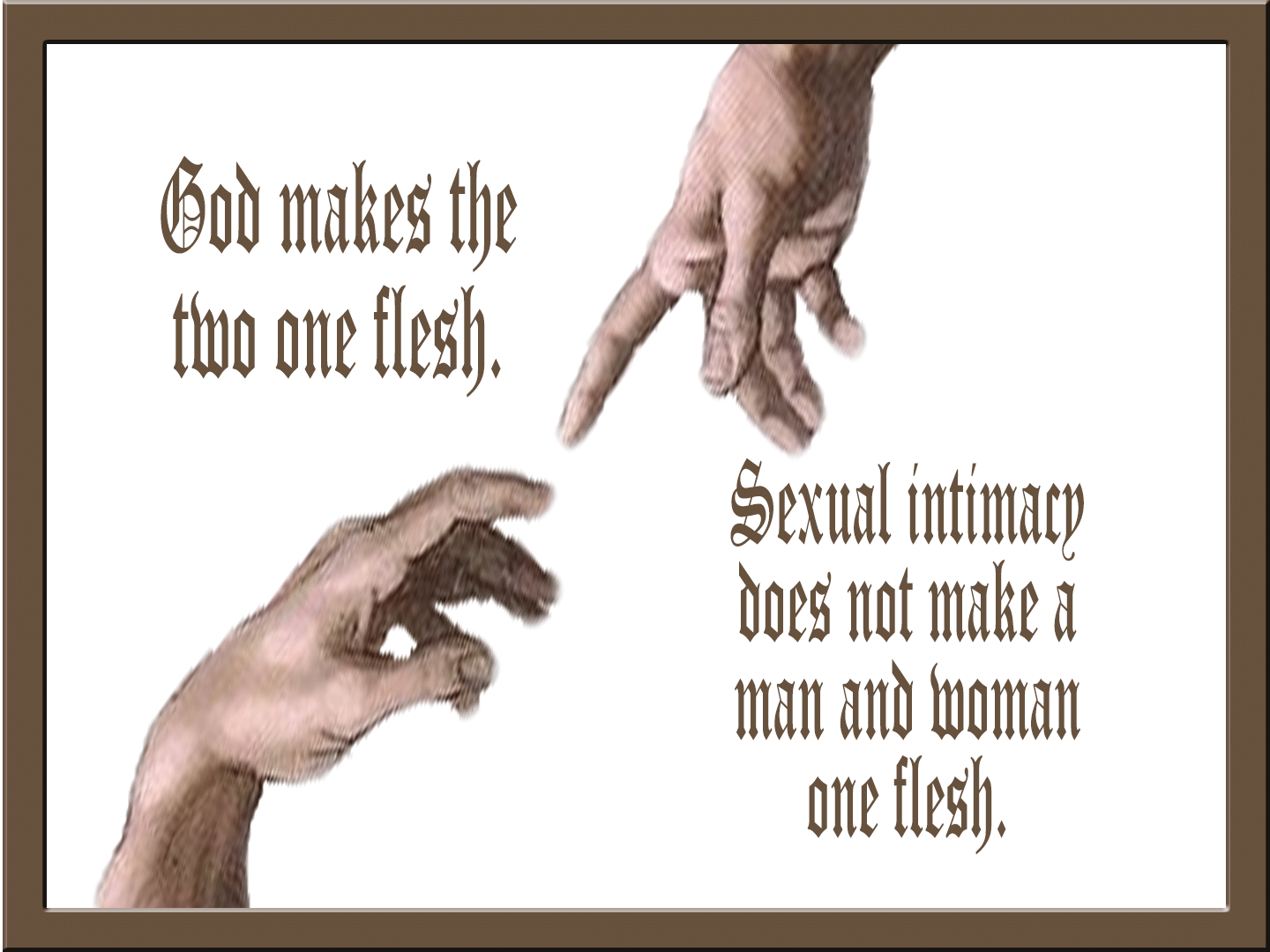
However, becoming one flesh has nothing to do with sexual intimacy. All sexual intimacy, other than that within a one-flesh marriage (a man and woman joined BY GOD), is sin. Sexual intimacy is a privilege given by God only to those He has joined together in marriage.
An espousal is a contract, not a marriage.
It is vital to understand that an espousal is a man-made contract. The man and woman, during the contractual period, have not been joined (made one flesh) by God. This was true with Joseph and Mary. However, once Joseph TOOK unto him Mary, through God’s supernatural joining, he and Mary were in covenant, a one-flesh husband and wife; and it became impossible for Joseph to “put Mary away.” They were one flesh until the death of one or the other.
Joseph and Mary could have no sexual intimacy until …
However, unlike other marriages, Mary was to remain a virgin UNTIL AFTER the birth of Jesus. This would fulfill what had been prophesied hundreds of years before (that Jesus would be born of a virgin). This had to be fulfilled exactly as foretold. Thus, Joseph and Mary were obedient. He … knew her not till she had brought forth her firstborn son: and he called his name JESUS. Matthew 1:25
Joseph and Mary had no sexual relations until after the birth of Jesus. The Scriptures confirm that Mary birthed several other children after the birth of Jesus: Is not this the carpenter’s son [Jesus]? is not his mother called Mary? and his brethren, James, and Joses, and Simon, and Judas? And his sisters, are they not all with us …? Matthew 13:55-56
There is a Reason For the Celebration!
The supernatural conception, giving rise to the birth of our LORD and Saviour Jesus Christ, is the reason many Christians participate in events during the month of December which honour this special occasion. There, however, is no Scriptural “mandate” to do so, even though there are Scriptural mandates to honour the death, burial, and resurrection of Jesus.

Even so, there is likely no other time of the year when the world hears more about Jesus than during the month of December. It commemorates God’s most valuable, incredible gift which was initiated on this earth with the unique conception within the womb of the virgin, Mary. God SENT His only begotten Son into the world Who ultimately volunteered to be beaten, mocked, and hung on a cross to shed His blood to redeem us. This was totally for my benefit, for yours, and for every person who has ever lived upon this earth. Our part is to repent from our sins and accept Jesus as Saviour and LORD of our lives.
Date of The Conception And Birth of Jesus??
As far as I can find, no one knows the exact date when Jesus started His initial 33-year physical presence on this earth. However, Luke, the physician, may have recorded some unique facts that could potentially be pointing toward a ball-park estimate for both the dates of the conception and physical birth of Jesus. Through studying the writings of Luke again, in preparation for this teaching, I have been reminded and made even more aware that every word in the Bible has a purpose!
The words of the LORD are pure words: as silver tried in a furnace of earth, purified seven times. Thou shalt keep them, O LORD, thou shalt preserve them from this generation for ever. Psalm 12:6-7
The Births of John The Baptist And Jesus
Luke’s gospel provides a key evidential witness to the potential timing of our Saviour’s supernatural conception and His birth. Luke weaves vital facts through the recording of not only Mary’s conversation with the angel Gabriel, but also through details of the lineage of another miraculous, but natural conception—that of elderly Zacharias and his elderly, barren wife Elisabeth. These were the godly parents of John the Baptist, a cousin of Jesus. There are some important recorded Biblical details in Luke’s gospel that link John and Jesus’ birth dates and confirm that Jesus was conceived and born about six months after John the Baptist.
Luke emphasizes that his writings include both eye witness accounts as well as in-depth studies of the Old Testament. He tells us that Elizabeth was in the lineage of Aaron and that John the Baptist’s father was a priest named Zacharias of the course of Abia.
One of the duties of priests was to serve in the temple on a rotating calendar basis once a week, twice a year. The assigned time for priests was initiated hundreds of years ago by King David who divided the times for priests to serve into courses, each course having a family name to identify which priests would serve during each of the Hebrew calendar months. Now these are the divisions [courses] of the sons of Aaron. 1 Chronicles 24:1 The eighth course was Abijah/Abia. (See 1 Chronicles 24:10.)
Abia was the assigned course in which Zacharias served, an important detail recorded by Luke (See Luke 1:5.). The date when Zacharias served is important as it could establish a timeline for the birth of Jesus. This would have been during the Jewish month Sivan or Tammuz, our May or June: http://www.angelfire.com/nv/TheOliveBranch/append179d.html (There are many online resources to study these Jewish calendar dates with their respective courses. To research, type in “priestly courses in the Bible.”)

“There was in the days of Herod, the king of Judaea, a certain priest named Zacharias, of the course of Abia: and his wife was of the daughters of Aaron, and her name was Elisabeth.” “And they had no child, because that Elisabeth was barren, and they both were now well stricken in years.” “But the angel said unto him, Fear not, Zacharias: for thy prayer is heard; and thy wife Elisabeth shall bear thee a son, and thou shalt call his name John.” Luke 1:5,7,13 It was after the “… days of his ministration were accomplished, he [Zacharias] departed to his own house. And after those days his wife Elisabeth conceived …” Luke 1:23-24
Consider additional facts that DOCTOR Luke skillfully weaves into the Nativity narrative, one of which is that Jesus was conceived through the Holy Ghost when Elizabeth was in her sixth month of pregnancy with John the Baptist. Gabriel told Mary: And, behold, thy cousin Elisabeth, she hath also conceived a son in her old age: and this is the sixth month with her, who was called barren. Luke 1:36
Luke reiterated the fact that Elisabeth’s pregnancy was also a miracle …who was called barren, that is, Elisabeth was likely beyond the child-bearing age, something of which Luke the physician would have been especially mindful; and it was in Elisabeth’s sixth month of pregnancy that Dr. Luke also records that Gabriel spoke to Mary.
Two babies in the womb communicate!
It was during the time of Elisabeth’s pregnancy that Mary “accepted” the honour of bearing, in her womb, the Messiah: And Mary, said, Behold the handmaid of the LORD; be it unto me according to thy word. She left with haste to travel to Elizabeth’s home and upon arriving when Mary greeted Elizabeth … the babe [John the Baptist] leaped in her [Elisabeth’s] womb; and Elisabeth was filled with the Holy Ghost. And she spake with a loud voice, and said, Blessed art thou among women, and blessed is the fruit of thy womb. And whence is this to me, that the mother of my LORD should come to me? Luke 1:38-43
Nine months after the conception of Jesus would potentially put His birth around August or September of the following year and at a time when shepherds were still out in field with their sheep. (See Luke 2:8.). Below is information from an article, The Course of Abia (Luke 1:5): http://www.angelfire.com/nv/TheOliveBranch/append179d.html


Whether or not these dates are accurate; that is, the conception of Jesus in December, 5 B.C. and His birth the following year, September 4 B.C., adds nothing to the validity or invalidity of the Scriptural facts and the supernatural conception of Jesus Christ. I personally feel that God chose Luke, a physician, to give us unique generational information about Zacharias and Elisabeth and facts about the conception and birth of John the Baptist and Jesus to further help us to glean even more detailed accuracy and appreciation of the meaning of every word in the Bible; the revelation of additional treasures buried for those who want to study at a deeper level. Let us not miss the fact that Luke, again, in Luke 1:8, reinforces Zacharias’ course in which he served: … in the order of his course.
And the angel answered and said unto her, The Holy Ghost shall come upon thee [Mary], and the power of the Highest shall overshadow thee: therefore also that holy thing which shall be born of thee shall be called the Son of God. Luke 1:35 Behold, a virgin shall be with child, and shall bring forth a son, and they shall call his name Emmanuel, which being interpreted is, God with us … and he [Joseph] called his name JESUS. Matthew 1:23, 25.
Should a Christian partake in celebrating the birth of Jesus Christ?
You may or may not be aware that there are many conflicting beliefs about the appropriateness of the celebration of the birth of Jesus and His birth being in the month of December. Some with opposing views focus their objections on what they feel is a pagan historical derivation of Christmas; others oppose this observance because of their belief that Jesus wasn’t born on December 25.
Needless to say, there are many beliefs, (scriptural and unscriptural); a plethora of abuses, wrong motives, and many inaccurate teachings attached to the celebration of the birth of our Messiah. I, however, look at this time of the year as an opportunity to talk with more strangers about the gospel than any other time of the year and pass out more information on our Saviour’s birth. It’s in what I participate in large part because people are so much more open to hearing about the Nativity and are made aware of this supernatural event through the many accurate and some Biblically inaccurate Nativity images depicting Joseph, Mary, and Baby Jesus in a manger. They also hear the same through Christmas carols sung and played in public venues. Many people worldwide participate in special family and friend gatherings and gift giving. (Sadly, the latter is sometimes wrongly emphasized to excess with debt-ridden credit-card purchases).
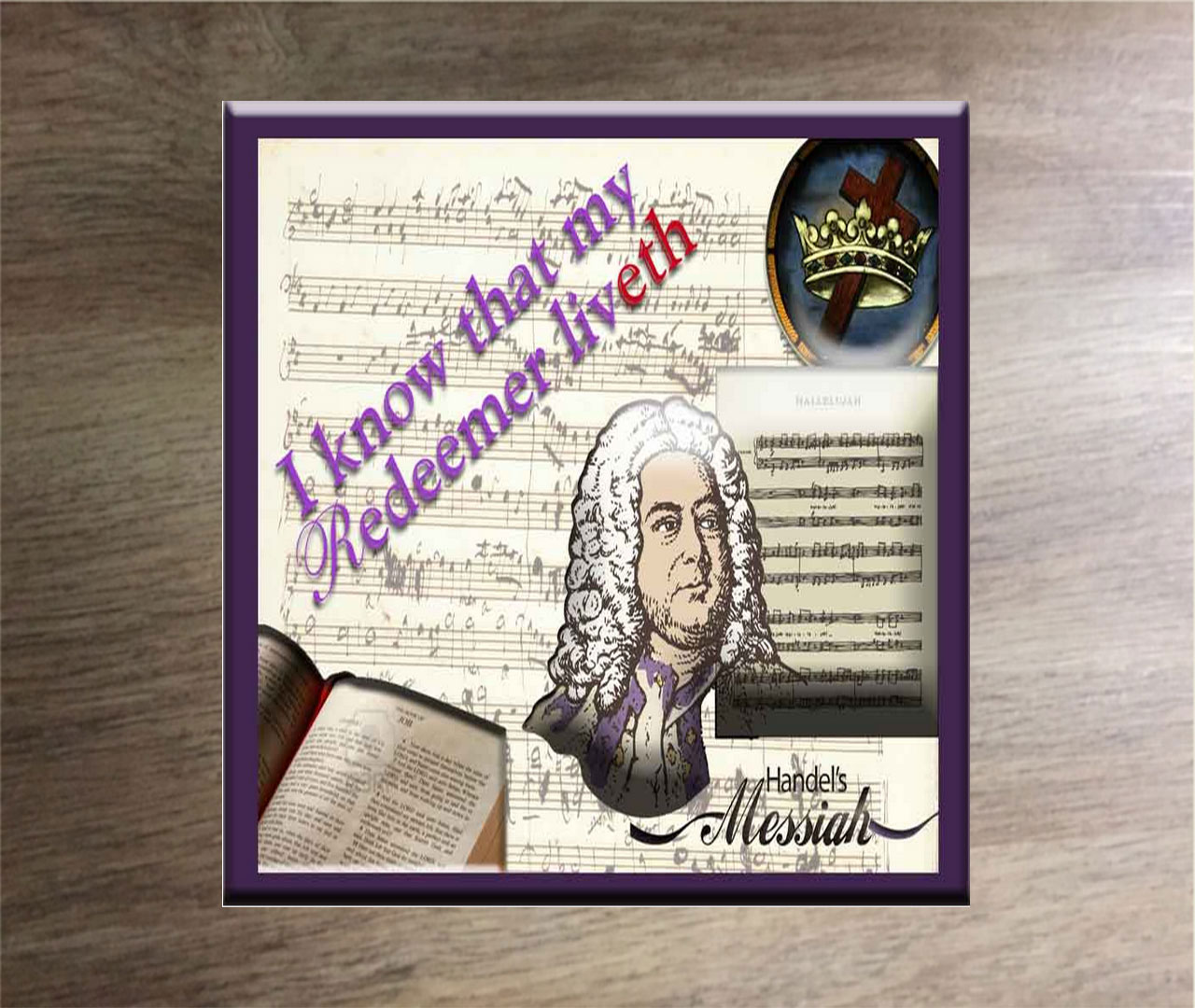
One miraculous well-known musical recognized and played worldwide, especially in December, is Handel’s Messiah. The lyrics are based on the King James Bible, Handel’s primary source. He wrote the Messiah in the year 1741 in 24 hours! It is taken from 81 Bible verses and 14 different books of the King James Bible, including 21 verses from Isaiah; 15 from Psalms and ten from First Corinthians.

Our Scripture Gifts to You
If you would like three complimentary copies of our tracts, Receive Jesus Christ Now and of our, latest formatted miniature booklet (2 ½” X 2”), What Does the Bible Say About Divorce?, please send your request to: RestorationOfTheFamily@gmail.com along with your postal mailing address. This offer is good only for those with U.S. postal addresses. The offer expires January 5, 2020 or as long as supplies last.

If you have questions or would like prayer, please email us at the address above.
Merry Christmas
In Christ’s Service,
Judith
Founder/President
Restoration Of The Family, Inc.
P.S. IF you make purchases from Amazon, Restoration Of The Family is a registered charity. If you type in “Amazon Smile” and register under Restoration Of The Family, Oviedo, FL., Amazon will make a donation of 0.5% of your qualified purchase amount to this ministry. Each time thereafter, if you type in Amazon Smile, the donation will automatically be made by Amazon to RFI. Thank you for your consideration of this.

